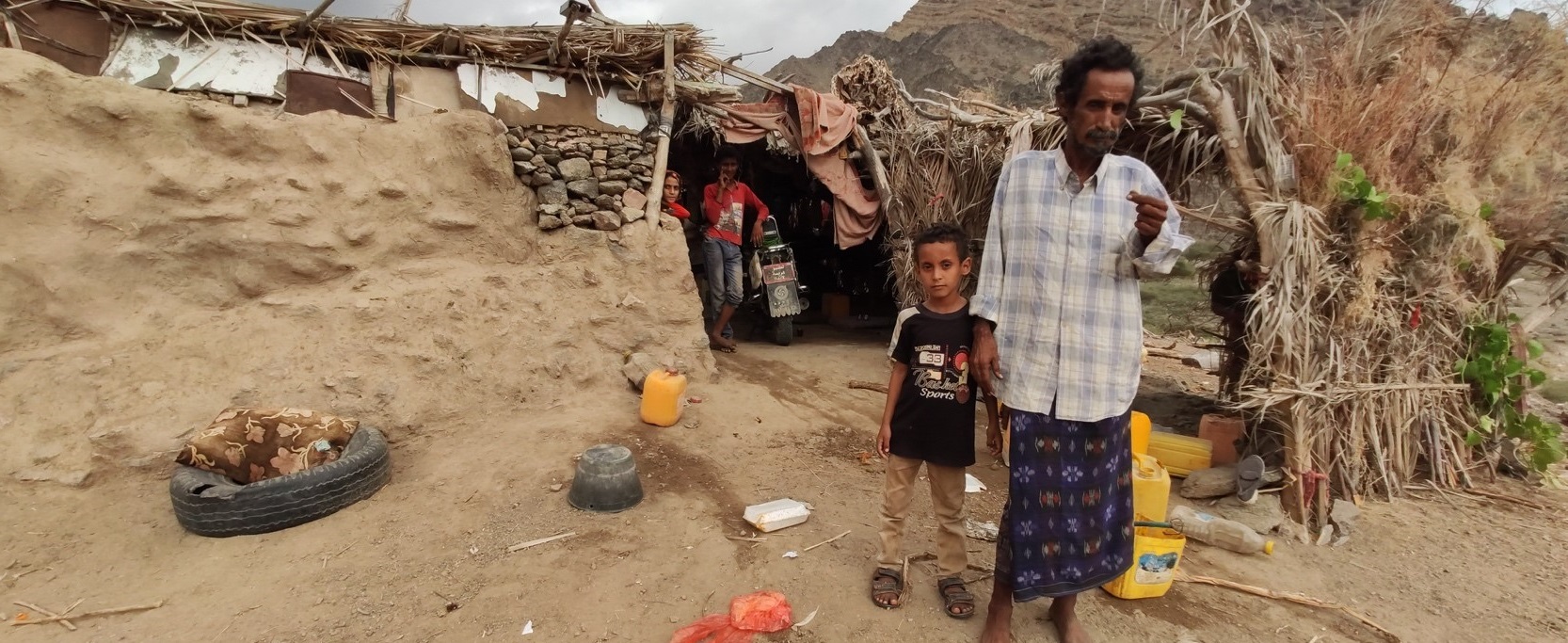The conflict in Yemen, which has gone on for nearly five years, has led to the suffering of more than 24 million people who are in need of humanitarian assistance. This is often due to the absence of basic services, which has caused the spread of diseases and epidemics such as cholera and dengue fever due to water pollution and a lack of hygiene awareness.
In Abyan governorate, in one of the most remote and distant villages, lives Ali Al-Ghawi, 52 years old. Mohammed lives in Bana village, and this area is one of the most deprived in Abyan.
“My family suffers from illnesses like diarrhoea and kidney diseases,” says Ali. “We did not know the reason, even though we were washing our hands with water.”
Ali’s family suffered from a lack of water, and when the rains stopped and the wells dried up, the suffering of family increased as they were forced to walk on difficult and dangerous paths to find only one litre of drinking water – enough for one day. Children often had to drop out of school because of water collection was so time consuming.
“Because of the contamination of water in the village, insects spread and diseases increased alarmingly. Many deaths have occurred in our village,” says Ali with sadness. Life in Bana village had become a survival challenge, with people looking for a miracle to save them from death.
Thankfully CARE intervened with the Yemen Emergency Food Assistance Project (YEFA III) funded by the United States Agency for International Development. Ali was a volunteer in the project, helping to educate his community on hygiene awareness, nutrition and safe water.
“The CARE project is what brought us together with the friend I have been looking for all my life – soap! Soap never entered our village before,” says Ali.

